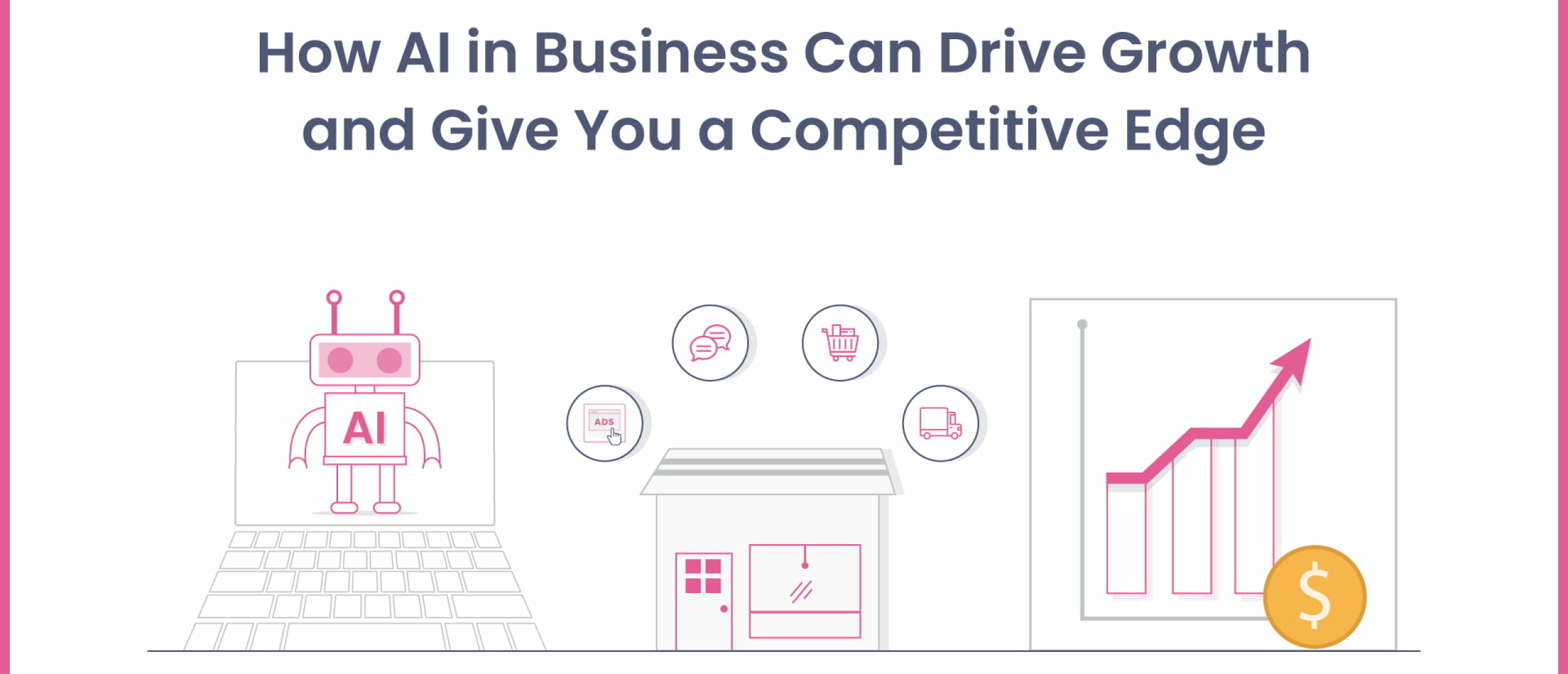Introduction
Definition of AI
Artificial intelligence (AI) refers to the simulation of human intelligence in machines that are programmed to think and learn like humans. It involves the development of computer systems capable of performing tasks that would normally require human intelligence, such as visual perception, speech recognition, decision-making, and problem-solving. AI has the potential to revolutionize various industries and improve efficiency and productivity. However, there are limitations to what AI can do, and it is important to understand these limitations to ensure responsible and ethical use of this technology.
Importance of AI
The importance of AI cannot be overstated. AI has revolutionized various industries and has the potential to transform the way we live and work. It has the ability to analyze vast amounts of data quickly and accurately, leading to more informed decision-making. AI also has the potential to automate repetitive tasks, freeing up human resources to focus on more complex and creative work. Additionally, AI has the capability to improve efficiency and productivity, leading to cost savings and increased competitiveness. With its ability to learn and adapt, AI has the potential to drive innovation and solve complex problems that were previously thought to be unsolvable. In conclusion, the importance of AI lies in its ability to enhance decision-making, automate tasks, improve efficiency, and drive innovation.
Limitations of AI
Artificial intelligence, despite its remarkable capabilities, still has its limitations. One of the major limitations of AI is its inability to truly understand context and meaning. While AI algorithms can process vast amounts of data and make predictions based on patterns, they often struggle to grasp the nuances of human language and the subtleties of human behavior. Additionally, AI systems can be biased and make incorrect or unfair decisions, especially if the training data used to develop them is biased. Another limitation of AI is its lack of common sense reasoning. While AI can excel in specific tasks, it often lacks the ability to apply common sense knowledge and reasoning to new and unfamiliar situations. These limitations highlight the need for human oversight and ethical considerations when developing and deploying AI systems.
AI in Creativity

Understanding Creativity
Creativity is a complex and multifaceted human trait that has long been considered unique to our species. While AI has made significant advancements in many areas, understanding and replicating human creativity still remains a challenge. The ability to think outside the box, generate novel ideas, and make unexpected connections is not easily replicated by machines. Creative thinking often involves intuition, emotions, and subjective experiences, which are difficult to quantify and program into an AI system. Despite the progress in AI, it is unlikely that machines will fully grasp the essence of creativity and produce truly original and innovative works of art, literature, or music. However, AI can be a valuable tool in assisting and augmenting human creativity, providing new insights, and helping to streamline creative processes.
AI in Art
AI in Art is a fascinating and rapidly evolving field. With the advancements in machine learning and deep learning algorithms, AI has been able to create stunning pieces of artwork that rival those created by human artists. From generating realistic paintings to composing music, AI has demonstrated its ability to mimic and even surpass human creativity. However, while AI can produce impressive art, it lacks the emotional depth and subjective interpretation that human artists bring to their work. Art is often a reflection of human experiences, emotions, and perspectives, which are difficult for AI to replicate. Therefore, while AI can excel in technical aspects of art creation, it falls short in capturing the essence of human expression and the profound meaning behind artistic creations.
AI in Music
AI in Music is a rapidly evolving field that has gained significant attention in recent years. With advancements in machine learning and deep learning algorithms, AI has the ability to compose music, generate melodies, and even mimic the style of famous musicians. However, despite these impressive capabilities, there are certain aspects of music that AI still struggles to replicate. The emotional and creative nuances that make music unique and deeply human are often difficult for AI to capture. While AI can generate technically proficient compositions, it often lacks the depth and soul that human musicians bring to their performances. Additionally, the improvisational nature of music, the ability to respond to the energy of a live audience, and the spontaneous collaboration between musicians are all elements that AI currently struggles to emulate. Despite these limitations, AI in Music holds immense potential for assisting musicians, enhancing creativity, and pushing the boundaries of musical expression.
AI in Emotional Intelligence

Understanding Emotional Intelligence
Emotional intelligence is a crucial aspect of human intelligence that sets us apart from artificial intelligence. It refers to the ability to recognize, understand, and manage our own emotions, as well as the emotions of others. While AI has made significant advancements in various fields, it still lacks the capacity to comprehend and respond to emotions in a truly human-like manner. Understanding emotional intelligence is essential in navigating complex social interactions, building meaningful relationships, and making informed decisions based on empathy and intuition.
AI in Empathy
AI in Empathy Artificial intelligence has made remarkable advancements in various fields, but when it comes to empathy, it falls short. While AI can analyze data and make predictions based on patterns, it lacks the ability to understand and relate to human emotions on a deep level. Empathy requires a human touch, as it involves not only recognizing emotions but also providing comfort, support, and understanding. AI may be able to simulate empathy to some extent, but it cannot truly empathize with the complex range of emotions that humans experience. Therefore, AI's role in empathy remains limited, and it is crucial to remember the irreplaceable value of human connection and compassion in this aspect of life.
AI in Social Skills
AI in Social Skills: While artificial intelligence has made significant advancements in various fields, it still struggles to fully comprehend and replicate human social skills. Although AI can analyze and process vast amounts of data, it lacks the emotional intelligence and empathy that are crucial in social interactions. Understanding and interpreting complex human emotions, non-verbal cues, and cultural nuances remain challenging for AI systems. While AI can assist in certain aspects of social skills, such as language translation or sentiment analysis, it cannot fully replace the human touch and intuition required for genuine social connections.
AI in Ethics

Understanding Ethics
In the realm of artificial intelligence, understanding ethics is crucial. As AI continues to advance and become more integrated into our daily lives, it is important to consider the ethical implications of its use. From privacy concerns to bias in algorithms, there are numerous ethical considerations that need to be addressed. By understanding ethics, we can ensure that AI is developed and used in a responsible and beneficial manner, taking into account the potential risks and consequences. Ethical guidelines and regulations play a vital role in shaping the future of AI, promoting transparency, fairness, and accountability. Therefore, a deep understanding of ethics is essential for both developers and users of AI technology.
AI in Decision Making
AI in decision making has revolutionized various industries by providing efficient and accurate solutions. With advanced algorithms and machine learning techniques, AI systems can analyze vast amounts of data and make informed decisions in real-time. These systems have the ability to identify patterns, predict outcomes, and optimize processes, enabling businesses to make better decisions and achieve their goals. However, it is important to note that AI is not infallible. While AI can process and analyze data at a speed and scale that humans cannot match, it lacks human intuition and subjective reasoning. AI systems may struggle with complex ethical dilemmas, value judgments, and situations that require empathy and emotional intelligence. Therefore, while AI is a powerful tool in decision making, it is crucial to combine it with human expertise and judgment to ensure the best outcomes.
AI in Moral Reasoning
AI in Moral Reasoning: While artificial intelligence has made significant advancements in various fields, it still falls short when it comes to moral reasoning. Unlike humans, AI lacks the ability to understand complex ethical dilemmas and make morally sound decisions. AI systems are programmed based on data and algorithms, which means they can only make decisions based on the information they have been trained on. This limitation poses challenges in situations where moral judgments and subjective reasoning are required. Furthermore, AI lacks empathy and emotional intelligence, which are crucial aspects of moral reasoning. As a result, AI is unable to consider the nuances and context of a situation, often leading to ethical dilemmas and potential harm. Therefore, it is important to recognize the limitations of AI in moral reasoning and ensure that human oversight and ethical guidelines are in place to mitigate any potential negative consequences.
AI in Intuition

Understanding Intuition
Understanding intuition is a complex task that even the most advanced AI systems struggle with. Intuition refers to the ability to understand or know something without the need for conscious reasoning. It is a deeply human characteristic that is often associated with gut feelings, instincts, and hunches. While AI has made significant progress in mimicking human intelligence, it still lacks the inherent ability to tap into intuition. This is because intuition is deeply rooted in our experiences, emotions, and subconscious mind, which are difficult to replicate in machines. As a result, AI systems rely heavily on data, algorithms, and logical reasoning, rather than intuition, to make decisions and solve problems. While AI can analyze vast amounts of data and provide valuable insights, it falls short when it comes to understanding the nuances and complexities of human intuition.
AI in Gut Feelings
AI in Gut Feelings: While artificial intelligence has made significant advancements in various fields, one area where it still falls short is in understanding and replicating human gut feelings. Gut feelings are often described as intuitive, instinctive, or a hunch that guides decision-making. These feelings are influenced by a combination of emotions, experiences, and subconscious processes that are difficult to quantify and replicate in AI algorithms. Although AI can analyze large amounts of data and make predictions based on patterns, it lacks the ability to comprehend the subtle nuances of human emotions and make decisions based on gut feelings. This limitation poses challenges in areas where gut feelings play a crucial role, such as creative problem-solving, empathy, and moral decision-making. As AI continues to evolve, researchers are exploring ways to incorporate human-like gut feelings into AI systems, but it remains a complex and ongoing challenge.
AI in Instincts
AI in Instincts: While artificial intelligence has made significant advancements in various domains, it still falls short when it comes to replicating human instincts. Instincts are deeply ingrained behaviors and responses that humans possess, which are often difficult to quantify or explain. AI systems rely on data and algorithms to make decisions, lacking the intuitive and spontaneous nature of human instincts. Whether it's the ability to sense danger, make split-second decisions, or exhibit empathy, these innate qualities are yet to be fully replicated by AI. While AI can analyze patterns and make predictions based on historical data, it struggles to understand the complexities of human emotions and the nuances of social interactions. As a result, AI is limited in its ability to truly comprehend and respond to situations in the same way humans can.
Conclusion
Summary of Limitations
Artificial Intelligence (AI) has made significant advancements in recent years, but there are still limitations to what it can do. In the summary of limitations, it is important to highlight some key areas where AI falls short. One major limitation is the lack of common sense reasoning. While AI systems can process vast amounts of data and make predictions based on patterns, they struggle to understand context and make logical inferences that humans find intuitive. Another limitation is the inability to handle ambiguity and uncertainty. AI models often struggle when faced with situations that have multiple possible interpretations or when dealing with incomplete or conflicting information. Additionally, ethical considerations and biases are important limitations to consider. AI systems are only as good as the data they are trained on, and if the data contains biases or is not representative of diverse populations, the AI system may perpetuate these biases. These limitations highlight the need for ongoing research and development to address these challenges and ensure that AI systems are used responsibly and ethically.
Future Possibilities
In addition to the current limitations of AI, there are also exciting future possibilities to explore. As technology continues to advance, AI has the potential to revolutionize various industries and improve our daily lives in ways we can't even imagine. From healthcare to transportation, AI can offer solutions that were once deemed impossible. With advancements in machine learning and deep learning algorithms, AI can become more intelligent and adaptive, enabling it to tackle complex problems and make informed decisions. The future of AI holds immense potential, and it will be fascinating to see how it continues to evolve and shape our world.
Implications for Society
The implications of AI for society are vast and far-reaching. While AI has the potential to revolutionize various industries and improve efficiency, it also raises concerns about job displacement and privacy. As AI becomes more advanced, there is a growing need for regulations and ethical guidelines to ensure that it is used responsibly. Additionally, AI algorithms can perpetuate biases and discrimination if not carefully designed and monitored. It is crucial for society to actively engage in discussions and debates about the ethical, social, and economic implications of AI to ensure that its benefits are maximized and its risks are mitigated.






